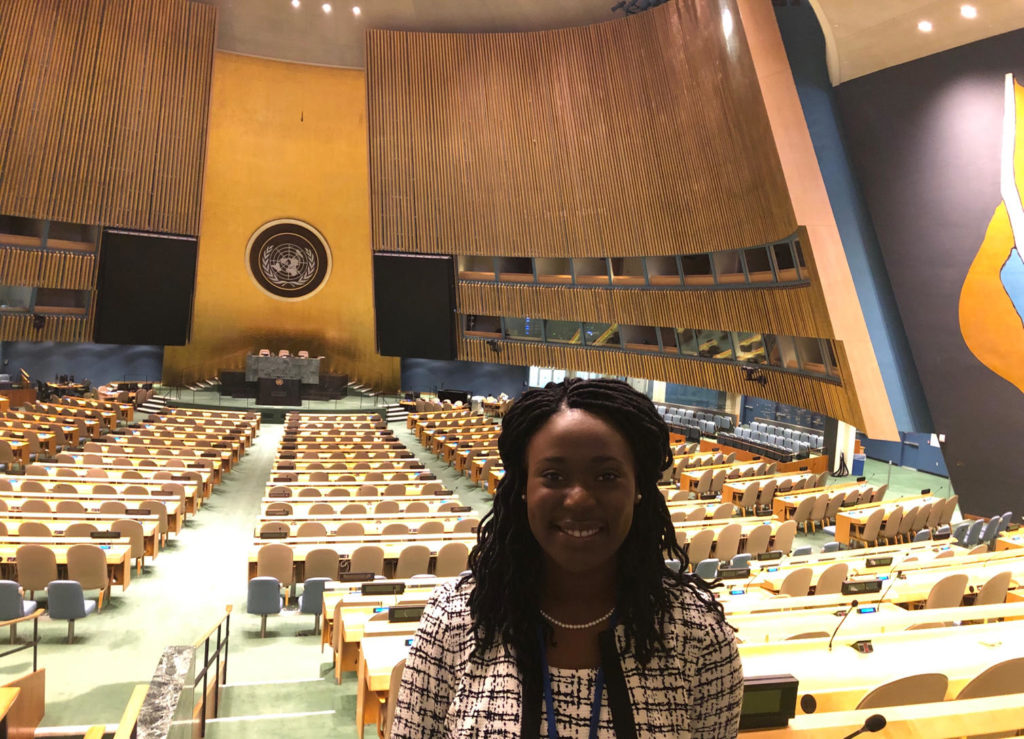Kau Guannu had the good fortune to attend last month’s United Nations Commission on the Status of Women (CSW). She found the experience inspirational, as she explains in her own words in the following piece entitled “Why What Happens At the United Nations Matters to the Legal Profession”:
“I was in New York two weeks ago with the University of St. Thomas School of Law “Catholic Social Thought & the United Nations” legal clinic for the United Nations (“UN”) Commission on the Status of Women (CSW). The focus of the Commission, which is in its 63rd year, was social protections for women. Embraced in the theme and discussed in the events hosted were issues relating to women’s rights, documenting the reality of women’s lives throughout the world, shaping global standards on gender equality, and the empowerment of women. At the culmination of the Commission, I reflected on my lobbying experience and the intersectionality of Catholic Social Teaching and international law. I couldn’t help, however, ponder how the UN impacts more than just Catholic Social Teaching. I knew that if I could find an answer to this, my legal career post-UN, would be greatly benefited. Fortunately, I believe I have.
MANDATE FROM THE ABA PREAMBLE
The connection between firm practice in particular and international law is not always apparent. Sometimes, depending on the practice areas within a firm, the connection need not exist at all. However, I submit that the Preamble of the American Bar Association (“ABA”) challenges legal professionals to reconsider this notion. In particular, section six (6) of the Preamble states, “As a public citizen, a lawyer should seek improvement of the law, access to the legal system, the administration of justice and the quality of service rendered by the legal profession”. The section further states, “A lawyer should be mindful of deficiencies in the administration of justice…therefore, all lawyers should devote professional time and resources and use civic influence to ensure equal access to our system of justice for all those because of economic or social barriers cannot afford or secure adequate counsel”. Legal professionals often equate this mandate with pro-bono service. While commendable, the pro-bono service rendered tends to be confined at the local and national levels when legal reform is equally needed at the international level.
BOTTOM LINE
With the foregoing in mind, it reasons that legal professionals should take time from their traditional and non-traditional practices, to give back to the international community. The ABA Rule of Law Initiative (ROLI) is one place to start. Just last month, the ABA ROLI together with UN peacekeeping forces helped the Democratic Republic of Congo investigate and convict a warlord. Outside of the UN, the ABA ROLI engages in legal education, judicial reform, and efforts to combat transnational crime. It also facilitates access to justice and women’s rights, anti-corruption, human trafficking, and citizen’s rights advocacy programs all over the world. The ABA ROLI is not the only place where one can offer up their skills. Many programs are in need of our legal expertise; and if given, I believe we become better advocates for it.”
